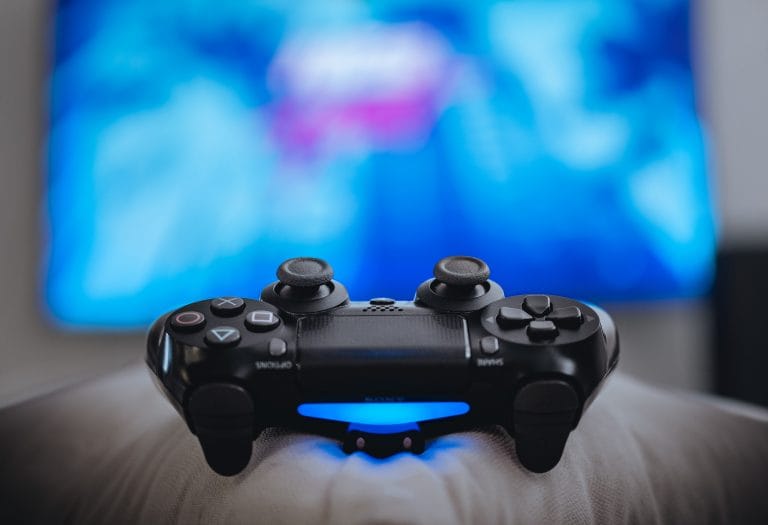What are the odds of winning?
Online & Vegas sports betting odds & lines, betting news & picks for 2021. Covers the most trusted source of sports betting information since 1995. Best Table Game Odds: Baccarat, Craps, Or Blackjack? You've got a lot of choices to make during your Las Vegas trip between picking shows, restaurants to dine in, and the best nightlife in town. So, let us help you choose where to win the most money with the best table game odds between blackjack, craps, or baccarat.
In most conventional games there is a winner and a loser. When you play a regular game of chance among friends the losses and wins are divided between the players.
However when you gamble through a business the odds are stacked against you, and it is always set up so that the ‘house' wins, the goal of gambling operators is to make money. Read more about the house edge.
Getting to know the odds of winning, can really help put your chances into perspective:

The chance of winning the first division of the lottery is
Powerball chance of winning first division (getting all 6 numbers correct)
For a Poker machine on a standard 5 line machine (top prize)
A handy tip: There is a better chance of being struck by lightning than winning the jackpot on a poker machine.
Improving the odds
It may seem like playing on the same machine or game will increase your likelihood of winning but this isn't the case:
PokiesYou can't increase the chances of winning. No outside factors, such as the time of day, how long you play or how lucky you feel will have any influence on the outcome. To read more about how pokies work.
Roulette and other games of chanceNo matter what occurred on previous rolls or spins the outcome of the next roll or spin is totally independent. Each spin is a separate event.
You cannot improve the odds of winning a game of chance such as roulette.
'Skill based' gamingSports betting or card playing may be affected by skill level in the short term.
However, so many random events, such as gaming margins and your emotional involvement all play a part.
There is no way that you will be able to consider all factors which could influence the race such as weather, other horses' form, the jockey having an argument with his girlfriend beforehand and so forth. You cannot control the odds of winning skill-based gaming.
Remember wishful thinking and gambling are a bad mix.Most people overestimate the chances of winning and forget that they are much more likely to lose.

The chance of winning the first division of the lottery is
Powerball chance of winning first division (getting all 6 numbers correct)
For a Poker machine on a standard 5 line machine (top prize)
A handy tip: There is a better chance of being struck by lightning than winning the jackpot on a poker machine.
Improving the odds
It may seem like playing on the same machine or game will increase your likelihood of winning but this isn't the case:
PokiesYou can't increase the chances of winning. No outside factors, such as the time of day, how long you play or how lucky you feel will have any influence on the outcome. To read more about how pokies work.
Roulette and other games of chanceNo matter what occurred on previous rolls or spins the outcome of the next roll or spin is totally independent. Each spin is a separate event.
You cannot improve the odds of winning a game of chance such as roulette.
'Skill based' gamingSports betting or card playing may be affected by skill level in the short term.
However, so many random events, such as gaming margins and your emotional involvement all play a part.
There is no way that you will be able to consider all factors which could influence the race such as weather, other horses' form, the jockey having an argument with his girlfriend beforehand and so forth. You cannot control the odds of winning skill-based gaming.
Remember wishful thinking and gambling are a bad mix.Most people overestimate the chances of winning and forget that they are much more likely to lose.
Watch what you spend. Avoid the tendency to write off losses to entertainment, losing is losing.
Test your odds
If you have doubts about the way odds work you can test the theory.
If you feel compelled to gamble try the following:
- Before each bet, make a note about what you think will happen
- Write down what actually happened
- Do this at least 10 times to test if your predictions were accurate.
The chances of developing a problem with regular gambling are probably much better than your chances of having a big win.
What Purpose Do Gaming Odds Have
The more often a person gambles, the greater the risk of developing a gambling problem.
The reasons why you gamble and the type of gambling you engage in also influences the probability of problematic gambling.
These are the odds:
If you don't gamble … no chance at all
If you only gamble occasionally … 1 in 50
If you gamble once or more a week on non-lottery types of gambling … 1 in 7
Is money the only thing that you are gambling with?
Events or outcomes that are equally probable have an equal chance of occurring in each instance. In games of pure chance, each instance is a completely independent one; that is, each play has the same probability as each of the others of producing a given outcome. Probability statements apply in practice to a long series of events but not to individual ones. The law of large numbers is an expression of the fact that the ratios predicted by probability statements are increasingly accurate as the number of events increases, but the absolute number of outcomes of a particular type departs from expectation with increasing frequency as the number of repetitions increases. It is the ratios that are accurately predictable, not the individual events or precise totals.
Gambling Odds Chart
The probability of a favourable outcome among all possibilities can be expressed: probability (p) equals the total number of favourable outcomes (f) divided by the total number of possibilities (t), or p = f/t. But this holds only in situations governed by chance alone. In a game of tossing two dice, for example, the total number of possible outcomes is 36 (each of six sides of one die combined with each of six sides of the other), and the number of ways to make, say, a seven is six (made by throwing 1 and 6, 2 and 5, 3 and 4, 4 and 3, 5 and 2, or 6 and 1); therefore, the probability of throwing a seven is 6/36, or 1/6.
In most gambling games it is customary to express the idea of probability in terms of odds against winning. This is simply the ratio of the unfavourable possibilities to the favourable ones. Because the probability of throwing a seven is 1/6, on average one throw in six would be favourable and five would not; the odds against throwing a seven are therefore 5 to 1. The probability of getting heads in a toss of a coin is 1/2; the odds are 1 to 1, called even. Care must be used in interpreting the phrase on average, which applies most accurately to a large number of cases and is not useful in individual instances. A common gamblers' fallacy, called the doctrine of the maturity of the chances (or the Monte-Carlo fallacy), falsely assumes that each play in a game of chance is dependent on the others and that a series of outcomes of one sort should be balanced in the short run by the other possibilities. A number of systems have been invented by gamblers largely on the basis of this fallacy; casino operators are happy to encourage the use of such systems and to exploit any gambler's neglect of the strict rules of probability and independent plays. An interesting example of a game where each play is dependent on previous plays, however, is blackjack, where cards already dealt from the dealing shoe affect the composition of the remaining cards; for example, if all of the aces (worth 1 or 11 points) have been dealt, it is no longer possible to achieve a 'natural' (a 21 with two cards). This fact forms the basis for some systems where it is possible to overcome the house advantage.
In some games an advantage may go to the dealer, the banker (the individual who collects and redistributes the stakes), or some other participant. Therefore, not all players have equal chances to win or equal payoffs. This inequality may be corrected by rotating the players among the positions in the game. Commercial gambling operators, however, usually make their profits by regularly occupying an advantaged position as the dealer, or they may charge money for the opportunity to play or subtract a proportion of money from the wagers on each play. In the dice game of craps—which is among the major casino games offering the gambler the most favourable odds—the casino returns to winners from 3/5 of 1 percent to 27 percent less than the fair odds, depending on the type of bet made. Depending on the bet, the house advantage ('vigorish') for roulette in American casinos varies from about 5.26 to 7.89 percent, and in European casinos it varies from 1.35 to 2.7 percent. The house must always win in the long run. Some casinos also add rules that enhance their profits, especially rules that limit the amounts that may be staked under certain circumstances.
Many gambling games include elements of physical skill or strategy as well as of chance. The game of poker, like most other card games, is a mixture of chance and strategy that also involves a considerable amount of psychology. Betting on horse racing or athletic contests involves the assessment of a contestant's physical capacity and the use of other evaluative skills. In order to ensure that chance is allowed to play a major role in determining the outcomes of such games, weights, handicaps, or other correctives may be introduced in certain cases to give the contestants approximately equal opportunities to win, and adjustments may be made in the payoffs so that the probabilities of success and the magnitudes of the payoffs are put in inverse proportion to each other. Pari-mutuelpools in horse-race betting, for example, reflect the chances of various horses to win as anticipated by the players. The individual payoffs are large for those bettors whose winning horses are backed by relatively few bettors and small if the winners are backed by a relatively large proportion of the bettors; the more popular the choice, the lower the individual payoff. The same holds true for betting with bookmakers on athletic contests (illegal in most of the United States but legal in England). Bookmakers ordinarily accept bets on the outcome of what is regarded as an uneven match by requiring the side more likely to win to score more than a simple majority of points; this procedure is known as setting a 'point spread.' In a game of American or Canadian football, for example, the more highly regarded team would have to win by, say, more than 10 points to yield an even payoff to its backers.
Nfl Week 9 Schedule And Gaming Odds
Unhappily, these procedures for maintaining the influence of chance can be interfered with; cheating is possible and reasonably easy in most gambling games. Much of the stigma attached to gambling has resulted from the dishonesty of some of its promoters and players, and a large proportion of modern gambling legislation is written to control cheating. More laws have been oriented to efforts by governments to derive tax revenues from gambling than to control cheating, however.

